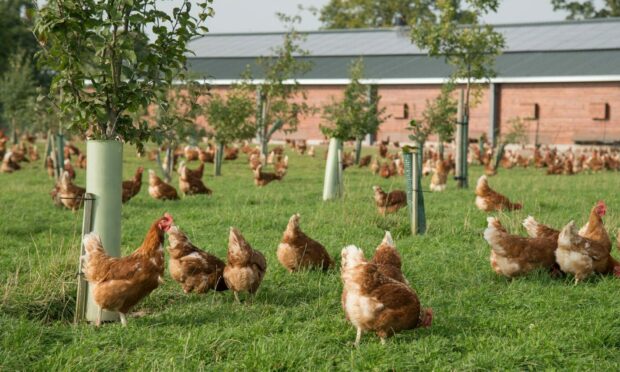The avian influenza housing order, which requires all poultry farmers and bird keepers to keep their birds indoors, will end on March 31.
The order, which was introduced across Great Britain in December, was designed to protect poultry and captive birds from contracting avian influenza from wild birds.
Government officials say the measures put in place have been successful in helping to contain the disease and provided there are no significant new cases between now and the end of March, the housing order will be lifted.
The last reported case of avian influenza in poultry in Great Britain was in Fife on February 12.
The requirement to adopt enhanced biosecurity measures will remain in place and farmers and bird keepers are advised to use the next two weeks to prepare their ranges and outdoor areas for release of the birds. This will include cleansing and disinfecting hard surfaces, fencing off ponds or standing water, and the reintroduction of wild bird deterrents.
In a joint statement, the chief veterinary officers of Scotland, England and Wales praised the efforts of poultry keepers to keep their flocks safe over the winter.
“We have taken swift action to contain and eliminate this disease and all bird keepers – whether they have just a few birds or thousands – must continue to do their bit to maintain biosecurity measures so that we do not lose the progress that we have made over the past few months,” added the vets.
“Low risk does not mean no risk.”
Poultry farmers, bird keepers and members of the public are asked to continue to report sightings of dead wild birds to the Defra helpline on 03459 33 55 77 and any bird keepers should report suspicion of the disease to the Animal and Plant Health Agency on 03000 200 301.
